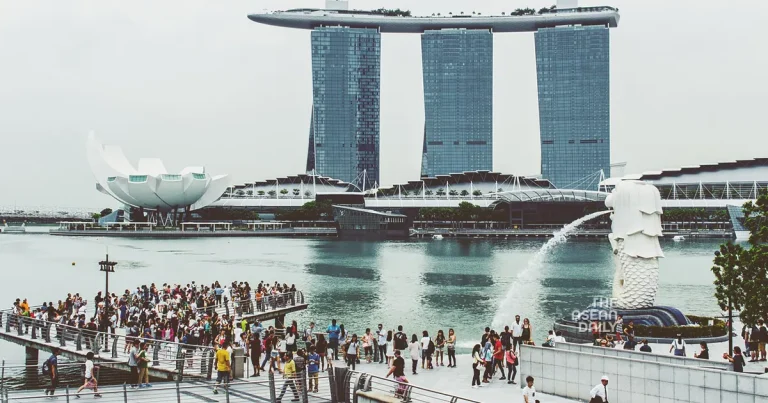6-10-2023 (SINGAPORE) Singapore is grappling with a resurgence of COVID-19 infections, and Health Minister Ong Ye Kung cautioned that more individuals are likely to fall ill and require hospitalization in the weeks ahead. Despite this concerning trend, he emphasized that there are currently no plans to reintroduce social restrictions, as was done during the previous wave that occurred between March and April.
During the official opening of the Stepping Stones Rehabilitation Centre and Serenity Centre at the Institute of Mental Health, Minister Ong shared that the daily estimated cases have risen from about 1,000 three weeks ago to 2,000 over the past two weeks.
The upsurge in cases is primarily attributed to two variants, EG.5 and its sub-lineage HK.3, both descendants of the XBB Omicron variant. These two variants now account for over 75 percent of Singapore’s daily cases. In April, during the peak of the previous wave, infections reached around 4,000 cases a day.
Minister Ong emphasized that Singapore is adopting a strategy of treating COVID-19 as an endemic disease, aligning with the nation’s approach. He pointed out that there is no evidence suggesting that the new variants are more likely to cause severe illnesses compared to previous ones.
He also reassured the public that current vaccines continue to be effective in protecting against severe illness caused by these new variants. However, he warned against complacency and urged Singapore to remain vigilant.
Minister Ong offered specific advice for seniors and individuals with underlying health conditions, recommending that they continue taking precautions, such as wearing masks in crowded areas. Most importantly, he advised seniors and vulnerable individuals to keep their vaccinations up to date, with at least one shot per year.
Minister Ong cited a Ministry of Health (MOH) study that revealed important insights into vaccination and protection. The study showed that individuals who had a minimum of three mRNA shots and a natural infection within the last 12 months had a lower incidence rate of severe illness, about 10 per 100,000 people. In contrast, those who were the “least protected,” with no minimum protection or recorded infection, were five times more likely to become seriously ill, with an incidence rate exceeding 50 in 100,000 people.
An essential finding in the study was that protection tends to wane after around 12 months. Minister Ong stressed the importance of maintaining up-to-date vaccinations, as doing so can help keep symptoms mild and provide protection against severe illness in case of reinfection.
He explained that taking another jab before the protection wanes can renew the protective effect. On the other hand, allowing protection to completely wear off could result in an infection being as concerning as during the initial pandemic outbreak when there were no vaccinations.
Minister Ong reaffirmed that the Ministry of Health continues to provide free COVID-19 vaccinations at various vaccination centers to ensure ongoing protection for the population.




